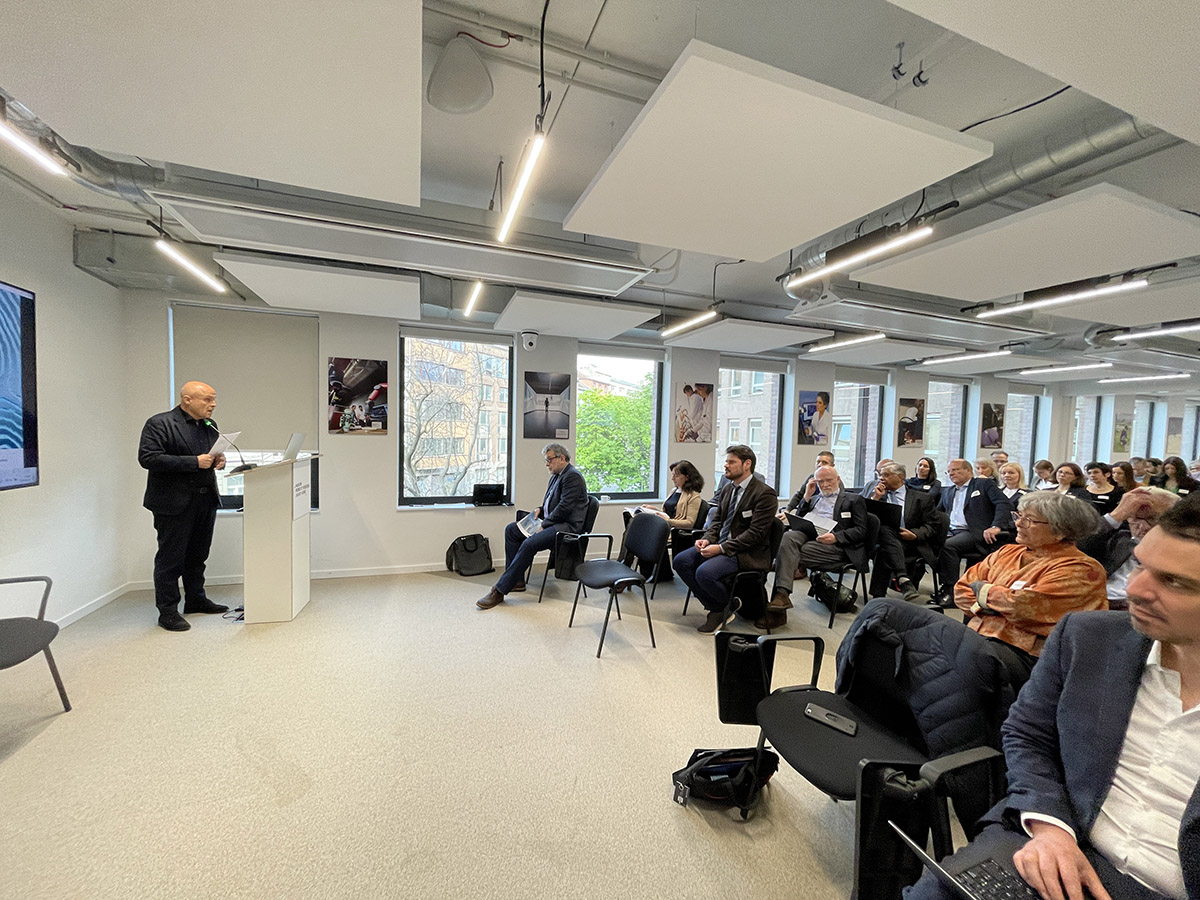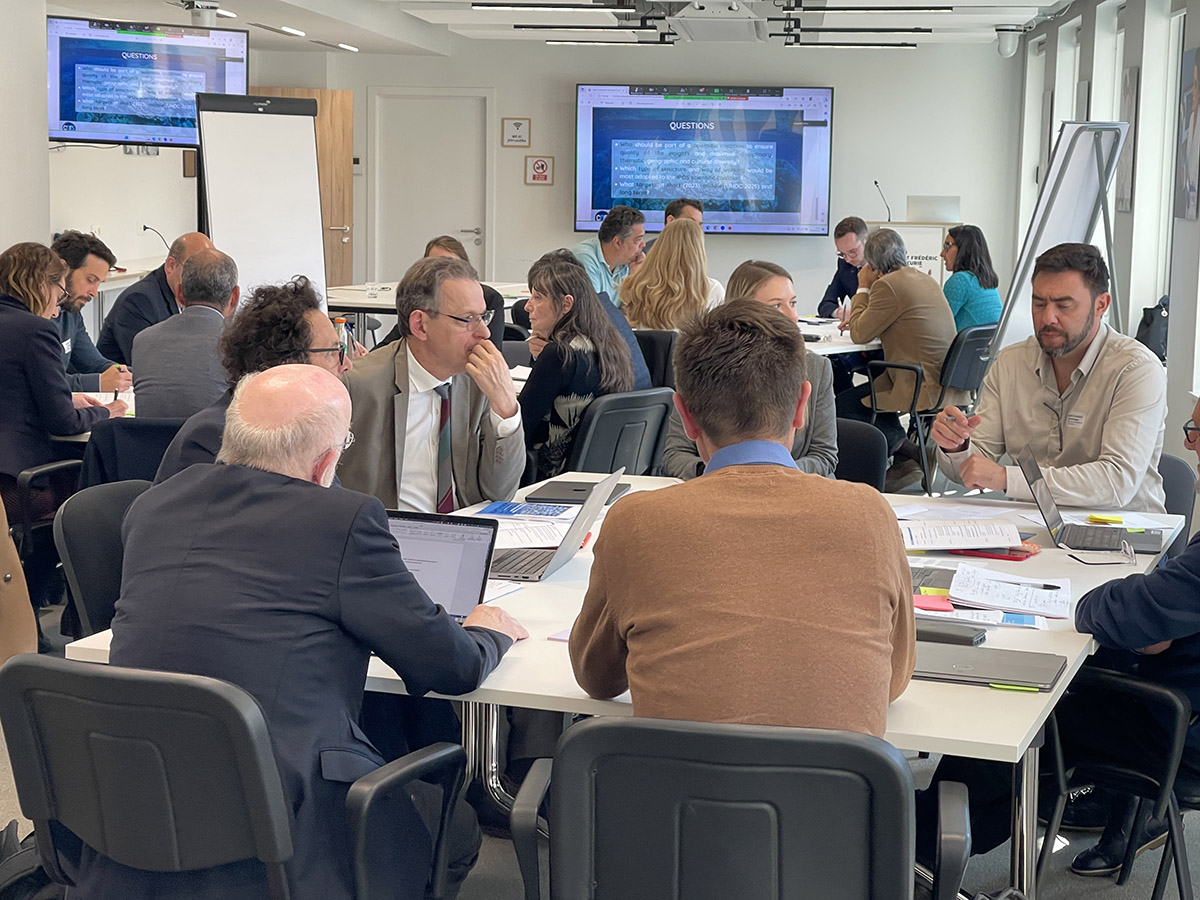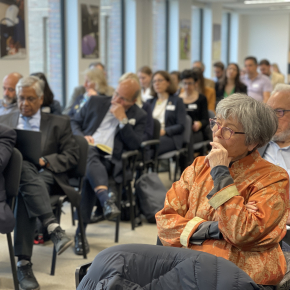
A step up for Ocean sustainability in Brussels
The CNRS brought together scientific institutions from across the globe for an exceptional conference to strengthen the position of the International Panel for Ocean Sustainability (IPOS) within global ocean governance.
“Today it is urgent to organize the global scientific community in support of a sustainable ocean.” Those were the words with which Alain Schuhl, Chief Scientific Officer of the CNRS, opened a conference in Brussels focusing on the International Panel for Ocean Sustainability (IPOS). Held on 18-19 April 2023 by the CNRS at the Maison Irène et Frédéric Joliot-Curie–a place built as a bridge between French public research and European institutions–the event had two objectives: to generate strong commitment from academic partners in support of the IPOS, via a closed workshop on the first day; and to mobilize decision-making bodies and representatives from civil society around the project on the second day.
“Our deadline is rapidly approaching,” reminds the marine biologist Françoise Gaill, a scientific advisor at the CNRS who has backed the creation of the IPOS since 2019. The panel should be able to issue its first recommendations before the 2025 United Nations Ocean Conference to be held in Nice, and jointly organized by France and Costa Rica. According to the researcher, the IPOS, with a focus on overall ocean sustainability taking into account all stakeholders, has always sought to encourage better scientific coordination with regard to oceans, since it is not the focus of either the International Panel on Climate Change (IPPC) or the Intergovernmental Science-Policy Platform on Biodiversity and Ecosystem Services (IPBES).

However, policy support for ocean management is just as essential as climate and biodiversity are for a sustainable planet. “This conference in Brussels is extremely important, as it is the culmination of years of efforts, and serves as an official link between the scientific world and policymakers, who attended in large numbers to understand the issues,” explains Gaill. Close to a hundred participants from across the globe attended, naturally including scientific representatives, ranging from the Alfred Wegener Institute in Germany and the very famous Woods Hole Oceanographic Institution in the US to Academies of Science–both European and Chinese–in addition to stakeholders, with numerous representatives from civil society, as well as national and international bodies. All expressed the need for strong ties between science, society and policy on the subject of ocean sustainability, as well as for the positioning of the IPOS within international ocean governance. High level attendees included Olivier Poivre d'Arvor, a special envoy from the French President to the 2025 United Nations Ocean Conference; Charlina Vitcheva, Director-General for Maritime Affairs and Fisheries at the European Commission; Mariya Gabriel, the Commissioner for Innovation, Research, Culture, Education, and Youth at the European Commission; and Catherine Chabaud, Member of the European Parliament.
An accelerating dynamic
The last two years have proven decisive in establishing the governance of the IPOS. With CNRS support from the very beginning, the IPOS was presented officially for the first time at the One Ocean Summit in Brest in February 2022, after being discussed at the Monaco Ocean Week, and later at the United Nations Ocean Conference held in Lisbon in June. This call was heard by a large number of research institutions in the field, such as the Woods Hole Oceanographic Institution, the Scripps, Mare, and Geomar, which together launched a coalition to support the IPOS at the famous Ocean Pavillon at the COP27 in Sharm El-Sheikh, in the presence of CNRS President Antoine Petit. A major study on the IPOS was published in December by the Nature Partner Journal (npj) Ocean Sustainability. “We should keep in mind that the European Union has already integrated the proposition of an IPOS within its Ocean Strategy, and has tasked the project with conducting a landscape study of global environmental assessments in order to map current ocean knowledge,” points out Tanya Brodie Rudolph from Stellenbosch University in South Africa, who is leading the study. It notably involves an assessment of the marine landscape, which began in early 2023 and is based on 35 global environmental assessments focusing on ocean sustainability and Sustainable Development Goal 14 (SDG 14). Brodie Rudolph must submit her final report in May, which will “serve as a basis for consultation by stakeholders, and will provide a consolidated map of ocean information in order to clarify the need for the IPOS.” The initial results presented in Brussels identify the overlaps and gaps in some studies, as well as the lack of data interoperability among the many actors in ocean research. Importantly, the results show that science-policy interface requires improvement to support concrete action towards a sustainable ocean and the achievement of SDG 14.

Co-construction, with an iron will
Like the one held on 18 April in Brussels, numerous workshops (in Europe, the United States, Asia) have, since the beginning of the year, assembled the building blocks to co-construct the structure and governance of the IPOS. An event held in Barcelona on 23-24 March was the first exclusively dedicated to the IPOS, and addressed issues relating to the co-construction of knowledge for ocean sustainability. “What is important is for the scientific community to organize better, and certainly not to add a new structure to the complexity that already exists,” explains Joachim Claudet, a Senior Researcher and Ocean Advisor at the CNRS. “The IPOS cannot and must not replace existing institutions and panels, but should instead allow the scientific community to better organize its response to issues connected to ocean sustainability, which involve numerous stakeholders.” As an illustration, he offers a reminder that studies on marine phenomena in one part of the world cannot be applied to the entire planet without discernment. “We must be able to apply recommendations with a fine-grained knowledge of the context, which includes the issue of sustainability, the environment, and stakeholders, ranging from the very general to the highly local,” he adds, citing as an example subjects as varied as bay management and deep sea mining.
While the outlines of governance and operating procedure for the IPOS are still being refined, the conference concluded with the signing of a joint declaration of support for the IPOS so that scientific institutions can continue with their engagement. A new event focusing on the IPOS should be held during the next assembly of the UNESCO Intergovernmental Oceanographic Commission (IOC) in June.


